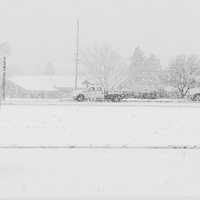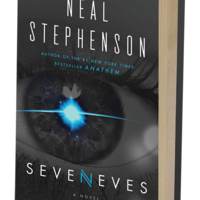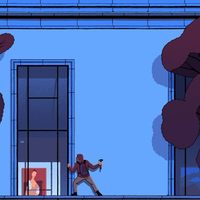Collection
The Best Books and Articles I Read in 2019
"This post will share the most impactful articles and books that I’ve read in the last 12 months." - Tim Ferriss
Using seven key indicators, such as the rate of entrepreneurship and overall job creation, this list provides a comprehensive overview of fastest-growing startup-friendly cities in the U.S. The top three are Austin (#1), Salt Lake City (#2), and Raleigh (#3). There are many more you might not expect, and quite a few should be fantastic places to invest in the next few years.
the president of Y Combinator and co-chairman of OpenAI. Here is one of the many paragraphs I highlighted in Evernote: “Most highly successful people have been really right about the future at least once at a time when people thought they were wrong. If not, they would have faced much more competition.”

This is the story of a wonderful philosophical reboot. Nearly everyone should consider reading it. Thanks to reader @lucasgabd from Rio de Janeiro for sharing with me via Twitter. For more great lessons from “failures,” check out “What I Learned Losing a Million Dollars.”

(Hat tip to the incredible Kevin Kelly for the recommendation.)
an outstanding author and long-form journalist. I particularly enjoyed his section on automation. Here’s a teaser: “‘Don’t learn to code, learn to automate,’ writes the coder Erik Dietrich. This is bang on. Nearly every white-collar job on the planet involves tons of work that can be done more efficiently if you know a bit of coding."

This is a wonderful article about moving from tech and hyper-liberal San Francisco to conservative-heavy Provo, Utah, and the lessons learned along the way. Sahil’s very humanizing perspective reflects a lot of reasons I moved from SF to Texas.

one of my favorite sci-fi writers. This short, anti-comms blog post contains gems like this: “The quality of my e-mails and public speaking is, in my view, nowhere near that of my novels. So for me it comes down to the following choice: I can distribute material of bad-to-mediocre quality to a small number of people, or I can distribute material of higher quality to more people. But I can’t do both; the first one obliterates the second.”


After my previous mention of the Sour Grapes doc in 5BF, my brother, who’d also read Billionaire’s Vinegar, said, “Oh, if you like that, I have something you’ll really like.” He sent me this New Yorker piece.

This is very important. How it is resolved, or not, will almost certainly affect the entire planet. Below are three excerpts to give you a flavor:
During a recent visit, Germany’s minister of economic cooperation and development, Gerd Müller, called protecting the Amazon a global imperative, especially given the rain forest’s vital role in absorbing and storing carbon dioxide, essential to the effort to slow global warming. And when trees are cut, burned or bulldozed, carbon dioxide goes directly back into the atmosphere.
[…]
“We’re facing the risk of runaway deforestation in the Amazon,” eight former environment ministers in Brazil wrote in a joint letter in May, arguing that Brazil needed to strengthen its environmental protection measures, not weaken them.
[…]
“Without tropical rain forests, there’s no solving the climate” issue, Mr. Müller said during an event in São Paulo.
What actions or countermeasures do you think might help mitigate this deforestation, whether by individuals (Brazilian, American, or otherwise) or the US administration? Please let me know on Twitter, using #planetarythreat, which will allow me to find your answers.

I printed this out weeks ago and placed it on my kitchen table to read. Each time I walked past it, I had the distinct feeling of “this seems important for me to read,” and it was. This article is a beautiful and highly tactical description of long walks, using technology on your terms, and finding stillness. Here are two paragraphs out of many that I loved:
I have configured servers, written code, built web pages, helped design products used by millions of people. I am firmly in the camp that believes technology is generally bending the world in a positive direction. Yet, for me, Twitter foments neurosis, Facebook sadness, Google News a sense of foreboding. Instagram turns me covetous. All of them make me want to do it—whatever “it” may be—for the likes, the comments. I can’t help but feel that I am the worst version of myself, being performative on a very short, very depressing timeline. A timeline of seconds.
[…]
In the context of a walk like this, “boredom” is a goal, the antipode of mindless connectivity, constant stimulation, anger and dissatisfaction. I put “boredom” in quotes because the boredom I’m talking about fosters a heightened sense of presence. To be “bored” is to be free of distraction.


